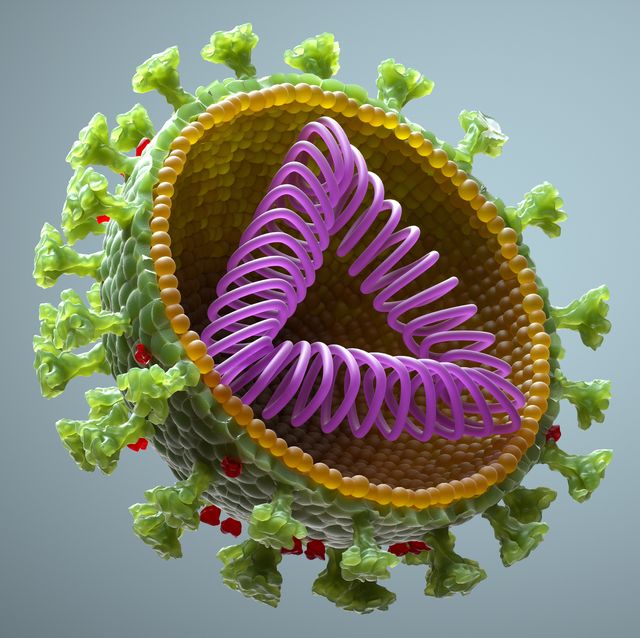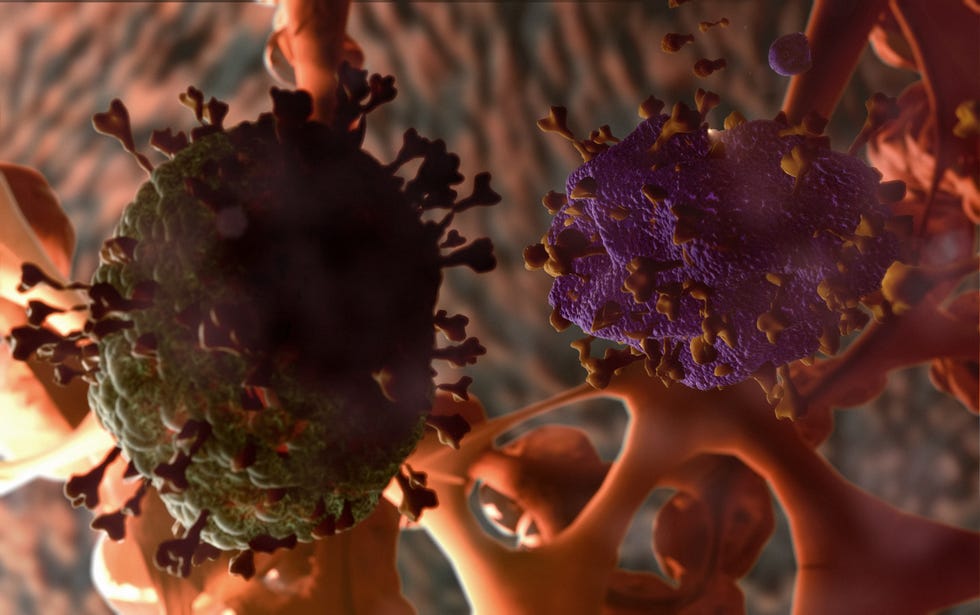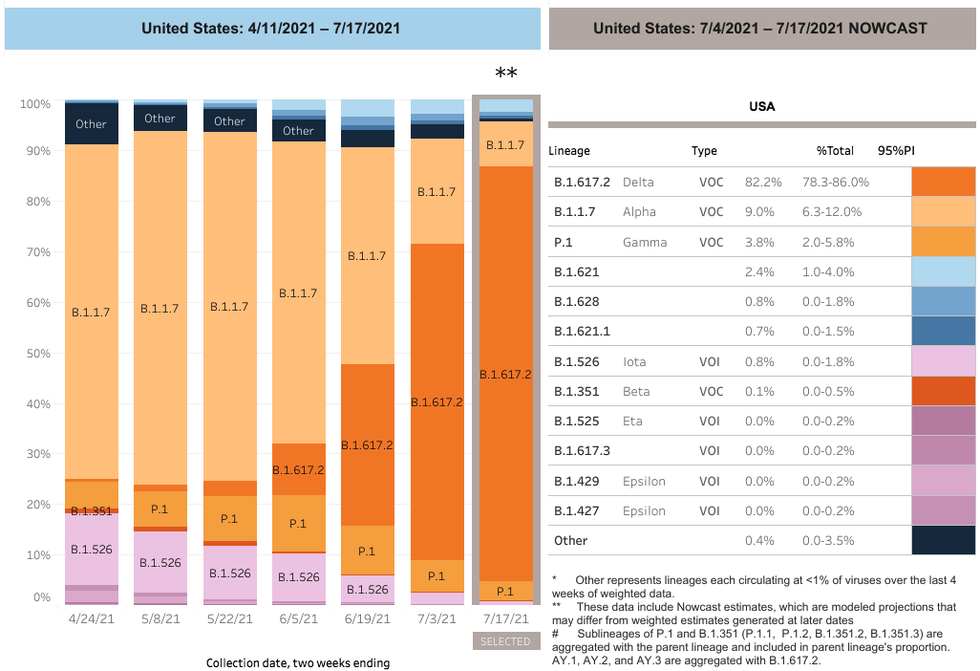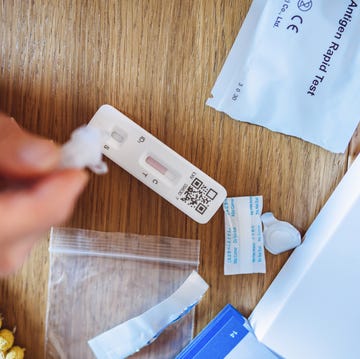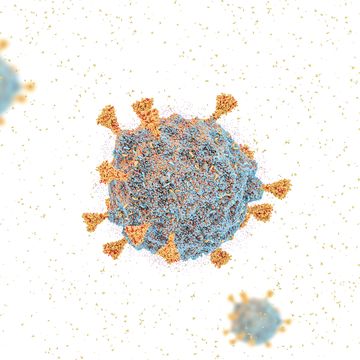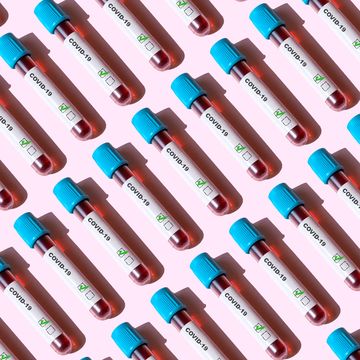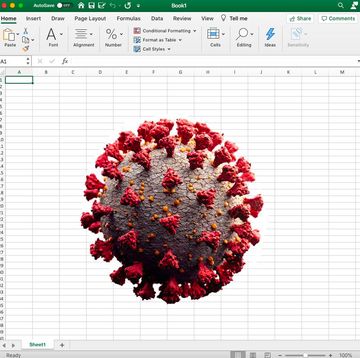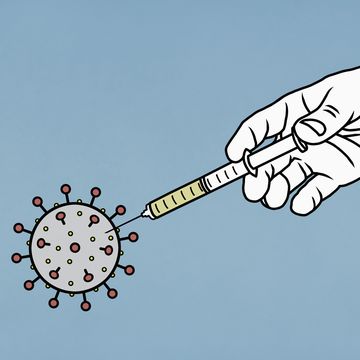- The Delta variant of SARS-CoV-2 (the virus that causes COVID-19) is a more contagious viral strain.
- So far, patients who contract the Delta variant are hospitalized at a higher rate with slightly different symptoms from those of the Alpha strain.
- The U.S. Centers for Disease Control and Prevention (CDC) has recently reversed its recommendations on masking for vaccinated people, stating that they should once again wear masks at indoor social events.
The Delta variant of SARS-CoV-2 (the virus that causes COVID-19) has been making headlines for months following its discovery in India in December 2020. Since then, the contagious viral strain has devastated that country and spread to 131 others as of Friday, according to the World Health Organization.
Genetic variants of viruses, according to the the U.S. Centers for Disease Control and Prevention (CDC), are like nearby branches of the same tree. By studying them, we can uncover related symptoms or characteristics that will help in the overall fight against COVID-19.
🔬 Science is on our side—we'll help you make sense of it.
So far, there are four variants of SARS-CoV-2 that the CDC considers "variants of concern," meaning that there is "evidence of an increase in transmissibility, more severe disease (e.g., increased hospitalizations or deaths), significant reduction in neutralization by antibodies generated during previous infection or vaccination, reduced effectiveness of treatments or vaccines, or diagnostic detection failures."
They're named for Greek letters in order, so there's Alpha, Beta, Gamma, and most notably, Delta, which health officials first observed in the U.S. in March. In a confidential report last week, the CDC said that the Delta variant is more contagious than chickenpox, the 1918 influenza pandemic, and the original COVID-19 strain. Publicly, the Atlanta, Georgia-based health agency has reversed prior recommendations, urging vaccinated adults to mask up again.
Understandably, the public is confused and concerned about the Delta strain. So what does the latest scientific research have to say about this highly contagious variant, which the CDC says is now the "dominant" strain in new cases of COVID-19 in the U.S.?
What Is the Delta Variant?
The CDC categorizes variants using the terms "variant of interest," "variant of concern," and "variant of high consequence." These are based on factors like "transmission, diagnostics, therapeutics, or immune escape," the CDC explains. There are currently several variants of interest, which is the lowest level of worry. Fortunately, right now there are no known variants of high consequence. Alpha, Beta, Gamma, and Delta are all variants of concern.
All this means that the Delta variant is a mutated strain of COVID-19 (coronavirus) with notable characteristics like increased transmission—meaning it's more contagious than the original virus strain. It also reduces the effectiveness of some treatments and vaccines compared to the Alpha strain. The Delta strain's official names are "21A" or "B.1.617.2," helping health officials to catalog different strains in a clear way for their communications and research.
Where Did the Delta Variant Come From?
A virus like SARS-CoV-2 constantly changes by mutating, with the evolutionary goal of continuing to infect new host organisms. There are multiple active mutated strains of SARS-CoV-2 that the CDC is monitoring, but the Delta variant has attracted the most attention due to its high rate of contagion.
Viruses constantly mutate, especially if their genetic material contains ribonucleic acid (RNA), as is the case with coronaviruses and influenza viruses. When a virus gets inside your body, it attaches itself to one of your cells, injecting its genetic material inside. From there, it makes copies of itself that can infect other cells in your body.
Sometimes, an error occurs during this replication process—what we know as a mutation. Usually, it's nothing to worry about, and the mistakes can even weaken a virus. But sometimes, the mutations are beneficial.
"If these advantageous genetic mistakes are included when the virus replicates, they're passed on and eventually become part of the virus's normal genome," Dr. Daniel Rhoads, a microbiologist and pathologist at the Cleveland Clinic, explains in a blog post.
Do Vaccines Work Against the Delta Variant?
A pre-print study (meaning it has not yet been peer-reviewed) looking at new COVID-19 cases in the United Kingdom found that the Pfizer vaccine is 88 percent effective against the Delta variant, which is just slightly below its efficacy against the original Alpha virus strain.
A very small pre-print study of Moderna vaccine recipients found that they had an increased number of effective titers against the Delta variant—a measure of antibody activity in the blood indicating increased immunity.
Further research will confirm or refute these initial findings, especially for different vaccine manufacturers and formulations.
How Contagious Is the Delta Variant?
One pre-print study of household transmissions in the U.K. found that Delta variant cases spread more quickly in households compared with the rate of sporadic contamination outside of households. That indicates that the Delta variant can get a better foothold more quickly—meaning a higher rate of transmission.
So far, evidence indicates that the Delta variant is also more contagious. A July study posted to the pre-print server MedRxiv followed 62 people in China who were some of the first to become infected with the Delta variant. Researchers found that the individuals' viral loads, which measure the density of viral particles in the body—were 1,260 times higher than those who were infected with the Alpha strain.
As of press time, the Delta variant accounts for over 80 percent of confirmed cases in the U.S.
How Serious Is the Delta Variant?
A June study published in the medical journal The Lancet found that the Delta variant especially hit younger, more affluent people, and patients were twice as likely to be hospitalized as those with the original Alpha strain.
In this study, people with five or more comorbidities—conditions like diabetes, high blood pressure, and obesity—were found even more likely to be admitted to the hospital. For people at high risk of complications from the Alpha strain, the Delta variant is likely even more dangerous for the same reasons.
Will the Delta Variant Make You Sicker?
People with the Delta variant seem more likely to require hospitalization, which indicates that it can make you sicker than the original virus. The symptoms, though, are slightly different from those of the Alpha strain. One Yale physician says that the Delta variant is less likely to cause loss of smell or taste or a persistent cough. Instead, it causes headache, sore throat, runny nose, and fever.
What's the Last Word on the Delta Variant?
Research is still ongoing and very active concerning all strains of SARS-CoV-2. For now, it looks like the Delta variant is more contagious and more likely to lead to hospitalization when compared with the original virus strain. This is one reason why the CDC has recently said they want even vaccinated people to wear masks in indoor social settings again—and why we hope everyone is complying with their recommendation.
🎥 Now Watch This:

Caroline Delbert is a writer, avid reader, and contributing editor at Pop Mech. She's also an enthusiast of just about everything. Her favorite topics include nuclear energy, cosmology, math of everyday things, and the philosophy of it all.
